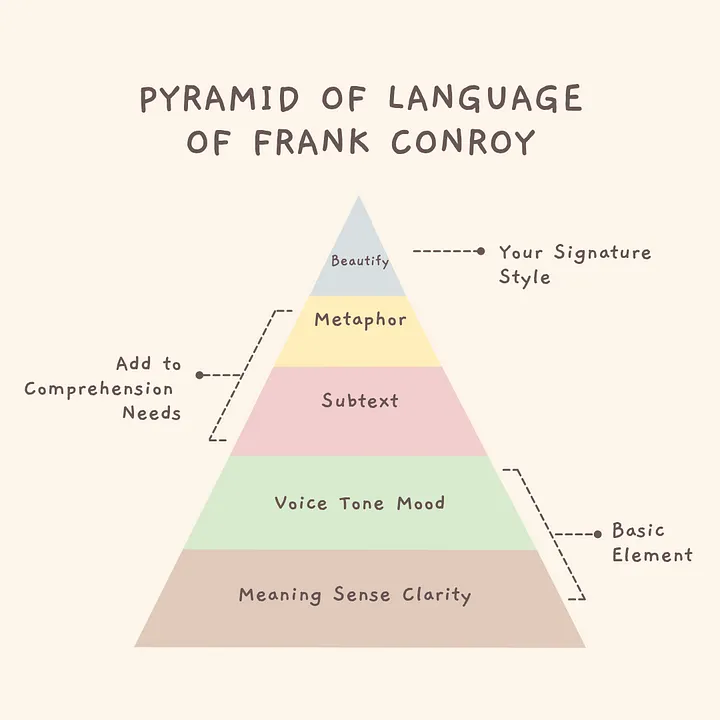
Writing, as we know, can evolve over time. Today, I’ll discuss great writing for creative writers without sounding mundane.
This blog isn’t about quick hacks, viral formulas, or attention-grabbing tricks. As a writer, I can vouch for the fact that when you fall for hacks and templates you get slow with the writing process as you try to fit yourself into a definition whereas, writing must be free-flowing and still directional.
Great writing is about becoming a confident and intentional master of your craft.
If you want to elevate your writing beyond surface-level strategies, read on. This might be the insight you’ve been waiting for.
Writing Is a Series of Choices (first you need mental clarity)
Great writing is not just about pragmatic decisions — like selecting a topic, a genre, or structure. What truly separates masterful writers from beginners is their awareness of their small choices: each word, each phrase, each pause.
Professional writers understand that words shape experience. Without mastery over words and wording, your message loses its power.
Many online writers focus on headlines and hooks, but true depth comes from understanding how to flaunt language with precision and intent.
The Pyramid of Language (a framework for mastery)

The Pyramid of Language is a hierarchy of writing elements developed by American novelist and creative writing teacher Frank Conroy. It helps determine the impact of a writing piece.
The foundation starts with meaning and clarity — the non-negotiables of communication. Without these, your message is lost.
In writing you don’t have to prioritize cleverness over clarity. Don’t fall into that trap.
Once you establish clarity, the next level is engagement — triggering emotions, using sensory details, and making your words feel alive. Even if you’re an informational writer, this layer helps you stand out.
At the peak of the pyramid are the stylistic elements that make writing unforgettable: rhythm, voice, metaphors, and subtext. These tools transform writing from functional to exceptional.
If you want to excel at your craft, understand this pyramid and make intentional choices.
Mastering Small Choices: 5 Strategies for Stronger Writing
1. Write with Power Verbs
Language is a tool, and verbs are its most potent force. Be economical with your words.
Every unnecessary word demands effort from the reader. Strong verbs drive momentum and create vivid imagery. Research shows that action-driven writing increases reader engagement by 32% (Source: Nielsen Norman Group).
Compare these sentences:
- “She received the book.”
- “She grabbed the book.”
How do they read differently?
Don’t they give different feelings?
The second sentence is more dynamic because of the verb “grabbed.” Intentional choice of verb keeps writing crisp and engaging.
2. Use Sensory and Concrete Language
Imagination is primarily visual. Studies from Princeton University’s Neuroscience Institute reveal that readers engage more deeply with writing that activates their senses.
Instead of saying:
- “He was very happy.”
Try:
- “His laughter echoed through the house, creating ripples in the wind.”
Sensory-rich writing immerses readers in your world, and makes your message memorable.
3. Know that Readers Are Smart
With great writing you respect the reader’s intelligence.
When you omit unnecessary explanations and allow them to draw their conclusions, you create intellectual engagement.
With AI and more writings on the web, there is huge internet garbage. As a writer you should aim to go beyond the chaos.
Observe the difference…
- She was nervous because she had never spoken on stage before.
You might write:
- She wiped her sweaty palms against her dress, adjusting the microphone with a deep breath.
This technique, known as show, don’t tell, makes writing more compelling by allowing readers to infer meaning on their own.
4. The Power of Rhythm and Flow
Rhythm in writing works like music.
Short sentences create urgency. Longer ones build immersion. A mix of both keeps the reader engaged.
James Patterson’s novels, for example, use short, punchy sentences to build suspense, while literary fiction often uses longer, flowing sentences to create deep emotional impact.
5. Metaphors and Analogies( the secret to lasting impression)
Studies show that metaphors improve comprehension by the readers.
Consider:
- She was determined. (Basic)
- She was a mountain, unshaken by the storm. (Memorable)
Metaphors create mental images, making your writing stick with readers long after they’ve finished reading.
Over to You
Great writing is not about quick tricks — it’s about mastering your craft through mindful choices of words and how you frame them.
Strong verbs, sensory language, and respect for your reader’s intelligence will set your writing apart.
The more intentional you become with each word, the more powerful your writing will be.
If you’d like personalized guidance on refining your writing skills, feel free to reach out for a consultation — I’d love to help you elevate your craft!
Love
Rajashree
Writing with purpose, connecting hearts ❤️